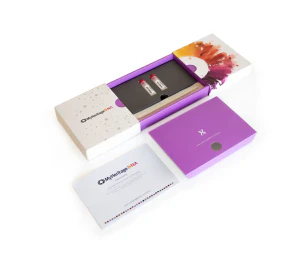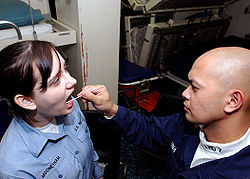
Many people are curious about their family roots and turn to DNA tests for answers. MyHeritage DNA can reveal an ethnicity estimate (a map of regions where your ancestors likely lived) and a list of DNA matches (often distant cousins) who share segments with you. For many, this can be thrilling – a chance to fill gaps in the family tree or connect with new relatives. But sending your DNA to a company also raises important questions about privacy and consent. Before diving in, it’s worth considering the trade-offs, as experts note that DNA testing can have implications not just for you but for your entire family.
Research your ancestors on MyHeritage
Potential BenefitsPotential Benefits

- Discovering new relatives: MyHeritage’s DNA Matching feature can link you with living relatives (often third- or fourth-cousins) who have also tested. Many people report a sense of excitement in “finding these connections” through DNA. This can lead to helpful tips for family history or even new friendships.
- Learning about your origins: The service provides an ethnicity estimate with a colorful map showing ancestral regions. For many this is the most interesting part of the test – you might learn, for example, that you have heritage from unexpected places or confirm family stories about a distant ancestor.
- Building your family tree: MyHeritage integrates DNA results with its genealogy tools. DNA matches can help confirm (or revise) relationships in your family tree and even unlock new lines of research. By default only basic information is shown to others, but you do share limited details (like your profile and the DNA segment data) when you match.
- User control: MyHeritage emphasizes user choice in its privacy policy. MyHeritage vows never to sell or license your genetic or health data without your explicit consent. You can delete your DNA data at any time. There are settings that let you turn DNA matching on or off, or limit exactly what your matches see (ethnic percentages, shared segments, etc.). You even have the option to opt in to anonymous research: by checking a box you allow MyHeritage’s science team to use your aggregate DNA data (with no personal identifiers) for studies, but you can withdraw that consent anytime. These protections mean MyHeritage offers more control than many services over how your data is used.
Privacy and Data HandlingPrivacy and Data Handling
MyHeritage’s privacy policy states that it will not sell or license your genetic information or share it with third parties without the explicit consent of the testee. In fact, the policy explicitly forbids providing DNA data to insurance companies or government agencies, and even says MyHeritage will resist law-enforcement requests to protect users’ privacy. All in all, the stated goal is to keep your genetic and personal data secure.
Concerns and Ethical IssuesConcerns and Ethical Issues
- Data security: Any DNA test means uploading sensitive personal data. Consumers should remember that if a tech company storing your genome is hacked or changes hands, your data might be exposed or used in ways you didn’t intend.
- Uncovering family secrets: Genetic genealogy can bring surprises. You might discover that someone in your recent ancestry wasn’t biologically related (for example, an adoptee or a hidden paternity), or find a half-sibling or cousin you never knew about. These “unexpected relatives” can be wonderful, but they can also be upsetting or sensitive for families. Different people react differently – some view new discoveries as a “healthy” part of family history, while others feel it violates privacy or causes emotional harm. There’s no way to guarantee a test won’t reveal such information.
- Impact on relatives: Your DNA isn’t just yours – it’s shared. When you test, you’re also revealing information about your parents, siblings, and cousins. MyHeritage explicitly notes that genetic privacy is a family issue. In practice, this means one person’s decision to test could effectively expose data about relatives who never consented. Some people worry about this: for example, if you test, your non-testing relatives may show up as your matches or have to deal with unexpected news. It’s a good idea to consider how family members might feel before uploading DNA data.
- Educate yourself about the legal implications of genetic testing.[1]
- Research different testing companies' ethical approaches and legal compliance.[2]
- Choose a reputable testing company with strong ethical guidelines, such as MyHeritage.[3]
- Review the informed consent documents thoroughly before proceeding.[4]
- Understand your legal rights regarding your genetic information.[5]
- Consider the potential impact of results on family members.[6]
- If testing for health purposes, consult with healthcare professionals about implications.[7]
- Use MyHeritage's privacy controls to manage access to your genetic information.[8]
- Stay informed about changes in laws affecting genetic information.[9]
- Consider seeking legal or ethical guidance for complex situations.[10]
- Be thoughtful about sharing results that might affect others.[11]
- Advocate for strong genetic privacy protections.[12]
ConclusionConclusion
There’s no one-size-fits-all answer. MyHeritage DNA testing does open the door to exciting discoveries: you could learn surprising things about your ancestry or meet long-lost cousins. MyHeritage also provides many privacy tools and strong statements (not selling your data, letting you delete it, etc.) that earn it a reputation as one of the more user-friendly options. On the other hand, genetic data is deeply personal and hard to fully control once shared; many people understandably worry about “what if” scenarios – from family drama to data misuse.
Ultimately, it comes down to personal choice. The best approach is to educate yourself: read MyHeritage’s privacy policy and settings (they describe all these options in plain language), talk with family members if needed, and decide whether the potential benefits (new family ties, rich ancestry insights) balance out the concerns (privacy and consent).
See alsoSee also
Explore more about ethics and DNA researchExplore more about ethics and DNA research
- DNA for Genealogy and Family History: Discover Your Roots, Heritage, and Identity on the MyHeritage Knowledge Base
- Facebook Live: The Ethics of Family History Research webinar on the MyHeritage Knowledge Base
- MyHeritage Privacy Policy
- Ethics, guidelines and standards - International Society of Genetic Genealogists
- Skillbuilding: The Ethics of DNA Testing - Board for Certification of Genealogists
- Social, Legal, and Ethical Implications of Genetic Testing - National Library of Medicine
References
- ↑ Genetic Alliance; District of Columbia Department of Health. Washington (DC): Understanding Genetics: A District of Columbia Guide for Patients and Health Professionals - Chapter 8 - Ethical, Legal, and Social Issues. 2010 February 17.
- ↑ International Society of Genetic Genealogy. Autosomal DNA testing comparison chart. n.d.
- ↑ International Society of Genetic Genealogy. Ethics, guidelines and standards. n.d.
- ↑ Southard, Diahan. Informed Consent for DNA Testing | 5 Things to Consider. Your DNA Guide, 9 April 2024.
- ↑ Electronic Frontier Foundation. Genetic Information Privacy. n.d.
- ↑ Diamond, Rebecca et. al. Genetic testing and family entanglements. Social Science & Medicine Volume 298, April 2022.
- ↑ Centers for Disease Control. Genomics and Your Heath - Genetic Testing. n.d.
- ↑ MyHeritage. Privacy Policy, 23 April 2025.
- ↑ Genetics Policy Hub
- ↑ Genetic Alliance; District of Columbia Department of Health. Washington (DC): Understanding Genetics: A District of Columbia Guide for Patients and Health Professionals - Chapter 8 - Ethical, Legal, and Social Issues. 2010 February 17.
- ↑ International Society of Genetic Genealogists. Ethics, guidelines and standards. n.d.
- ↑ Russell, Judy G. Advocating genetic data privacy. The Legal Genealogist, 30 June 2019.

